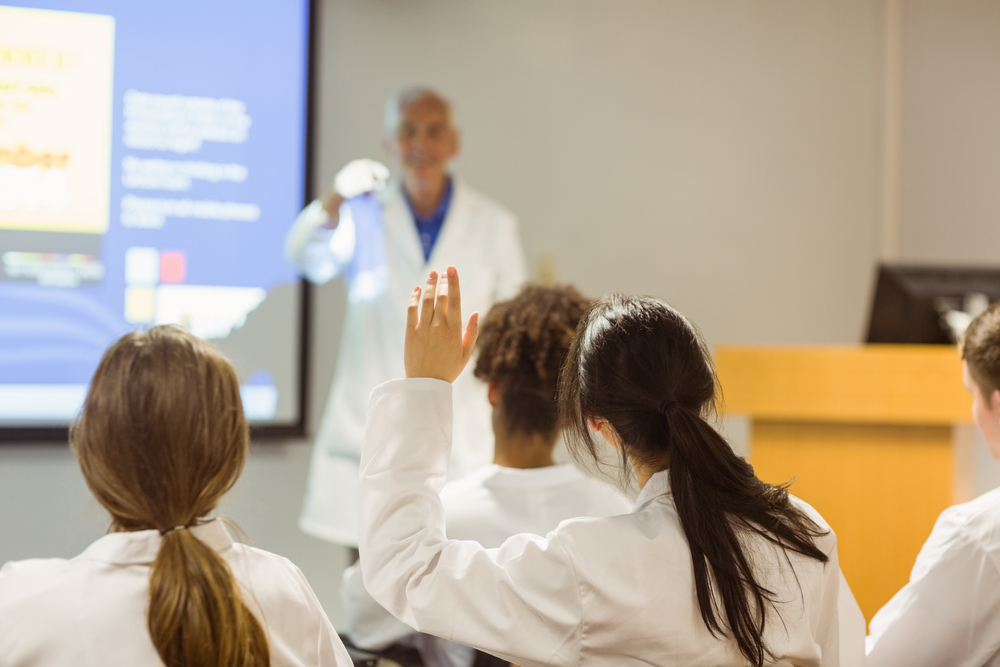
The Professional Master
According to Normative Ordinance No. 7, dated June 22, 2009, from the Ministry of
Education, the objectives of the professional master's program are to train qualified
professionals to exercise advanced professional practice and transform current
procedures. In addition, it is expected that the program help in transferring knowledge
to society, meeting specific demands and productive arrangements for national, regional
or local development. Also, it is aims at incrementing competitiveness and increasing
productivity in companies, public and private organizations.
We understand that, unlike academic graduate programs, the main objective of the
professional master's degree is to return to the market (in our case to the schooling
system), a highly qualified professional, with the power of critical analysis and the
potential to transform his practice to respond to contemporary needs.
Duration: 24 months.
Overall coordination
Andrea Velloso de Silveira Praça
andrea.velloso@unigranrio.edu.br
PPGEC Collegiate Members:
Profa. Andrea Velloso da S. Praça
(Coordinator)
Profa. Eline das Flores Victer
(Mathematics Representative)
Profa. Giselle Faur de Castro Catarino
(Physics Area Representative)
Profa. Giseli Rodrigues Capaci
(Chemistry Area Representative)
Lívia Maria Velez dos Santos
(Administrative Representative)
The curricular structure of the Professional Master's Course in Science Teaching is composed of mandatory and elective subjects, supervised teaching practice and complementary activities. The minimum workload for the completion of the Professional Master's Degree in Science and Mathematics Teaching is 450 hours of subjects and 90 hours of Dissertation and Supervision, making a total of 540 hours to be completed in four semesters, with the possibility of extending to five semesters (as provided in the Teaching Area document for Professional Master's Courses). The PPGEC student must fulfill during his/her training at the professional Master's level:
PPGEC offers six compulsory subjects and a large number of elective subjects reveal
the importance given to the principle of flexibility and the freedom of choice of the
students themselves for their education, based on experiences that come closest to their
personal interests.
Description: The Graduate Program in Science Teaching for Basic Education is comprised of a professional master's aimed at teachers in the areas of Mathematics, Biology, Chemistry and Physics. The objective of the course is to reframe the teaching practice and its training processes, which should be anchored in innovative educational approaches.
Description: This line of research reflects on the process of teaching and learning Science. In this context, the conceptual approach relates the issues of culture, knowledge and school practices from the perspective of their daily thinking and doing. It also seeks to understand the way in which the process of appropriating meanings and concepts in science occurs and understanding the role of interaction/relationship in the learning process, which imply a higher mental structure of the individual in the conceptual elaboration process.
Concentration area: Science Education for Basic Education
Professors: Abel Rodolfo Garcia Lozano, Andrea Velloso da Silveira Praça, Giseli Capaci Rodrigues, Jurema Rosa Lopes.
Description: It is dedicated to the study of technological innovation in science teaching. It studies how technologies, especially those of Information and Communication (ICTs), change the nature of educational praxis, analyzing its potential.
Concentration area: Science Education for Basic Education
Professors: Eline das Flores Victer, Giselle Faur de Castro Catarino, Haydea Maria Marino de Sant'anna Reis.
Description: It aims at investigating the existence/use of methodological procedures for teaching Science in basic education, with a view to the development of learning, for the exercise of citizenship within the scope of social relations.
Concentration area: Science Education for Basic Education
Professors: Andrea Velloso da Silveira Praça, Eline das Flores Victer, Giselle Faur de Castro Catarino, Haydea Maria Marino de Sant'anna Reis, Jurema Rosa Lopes.